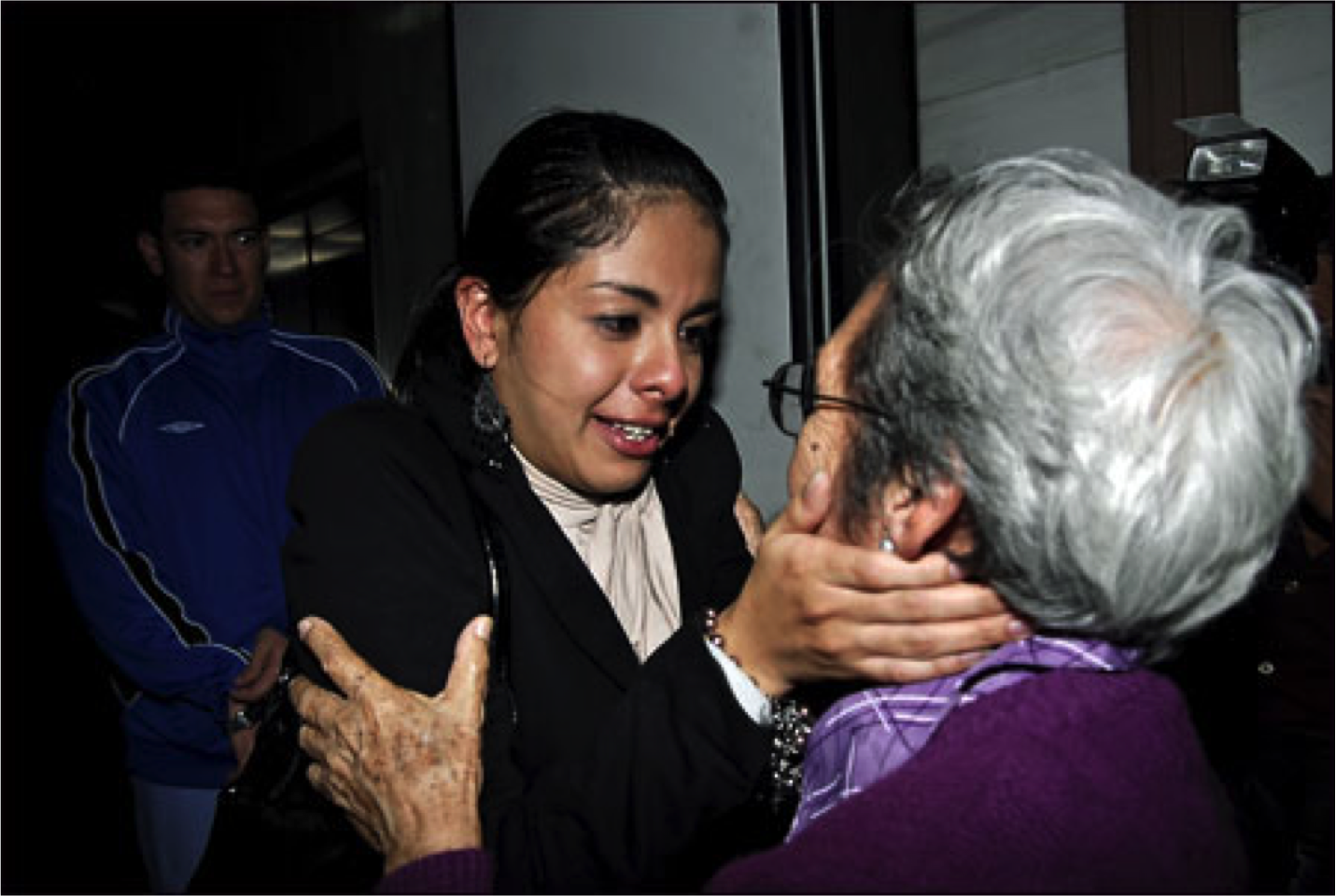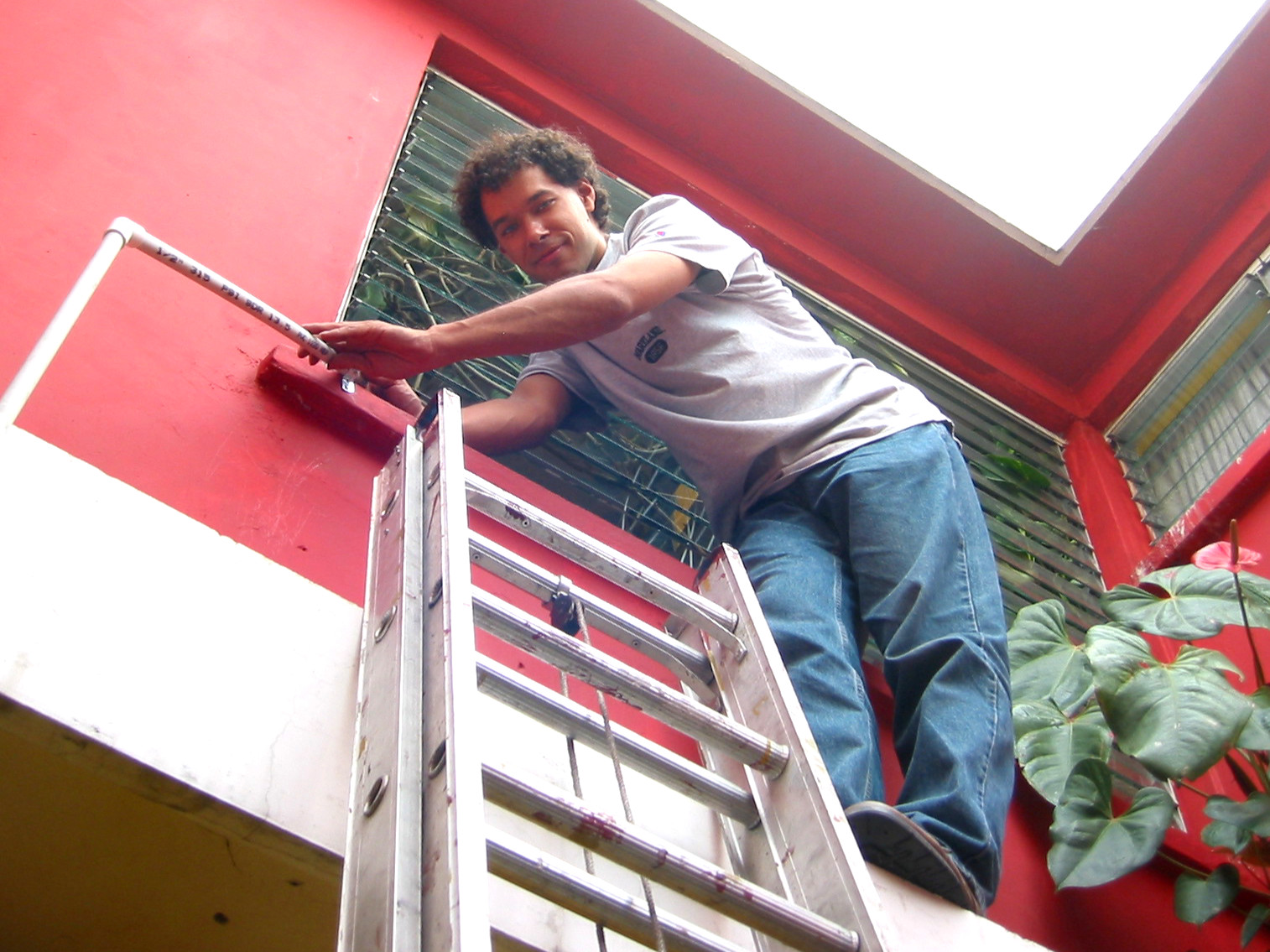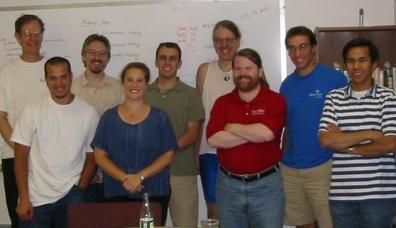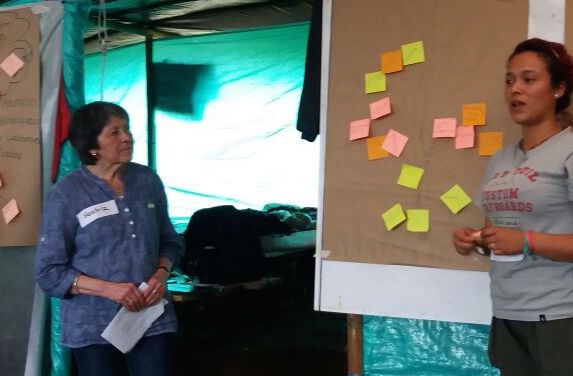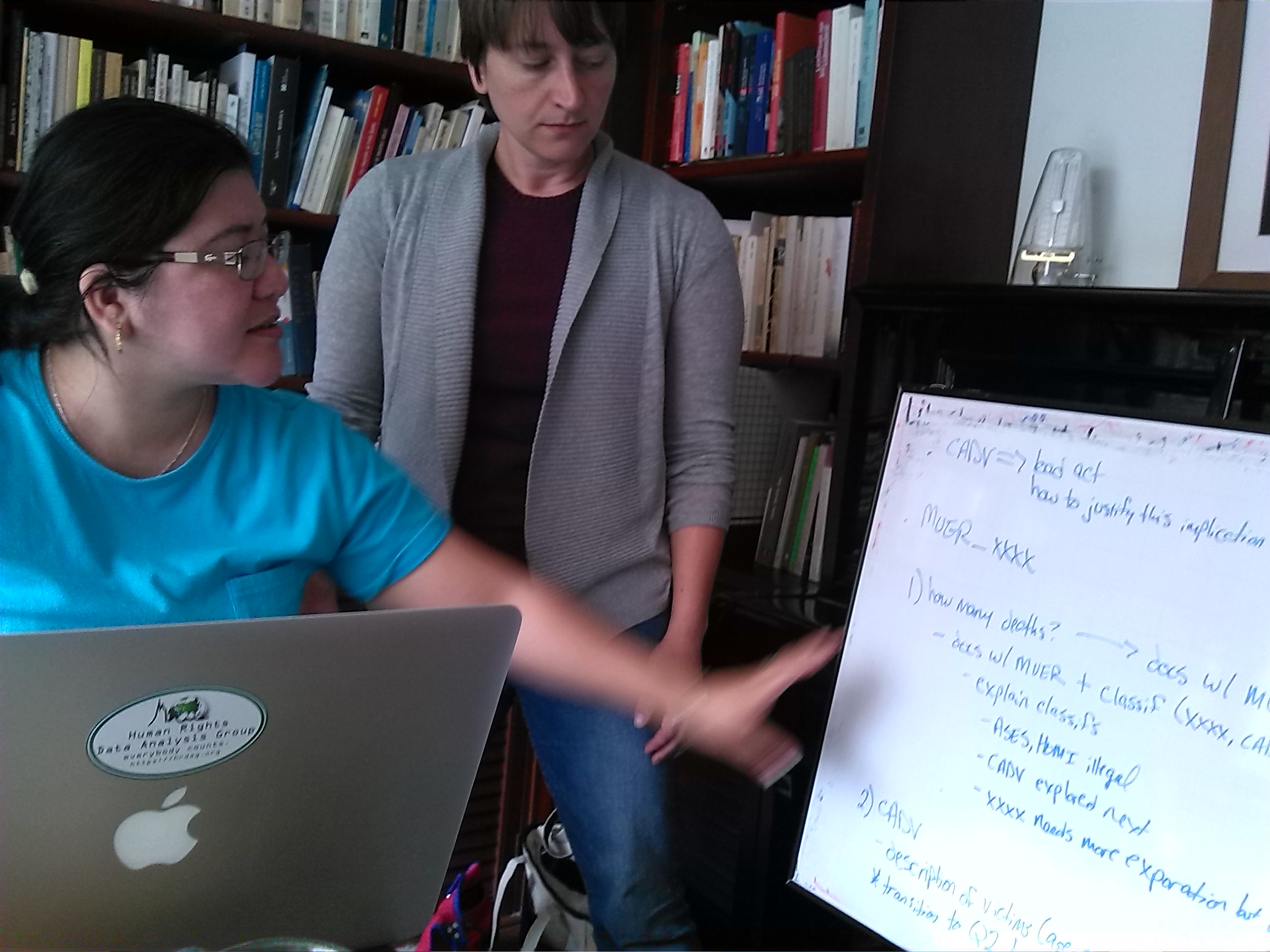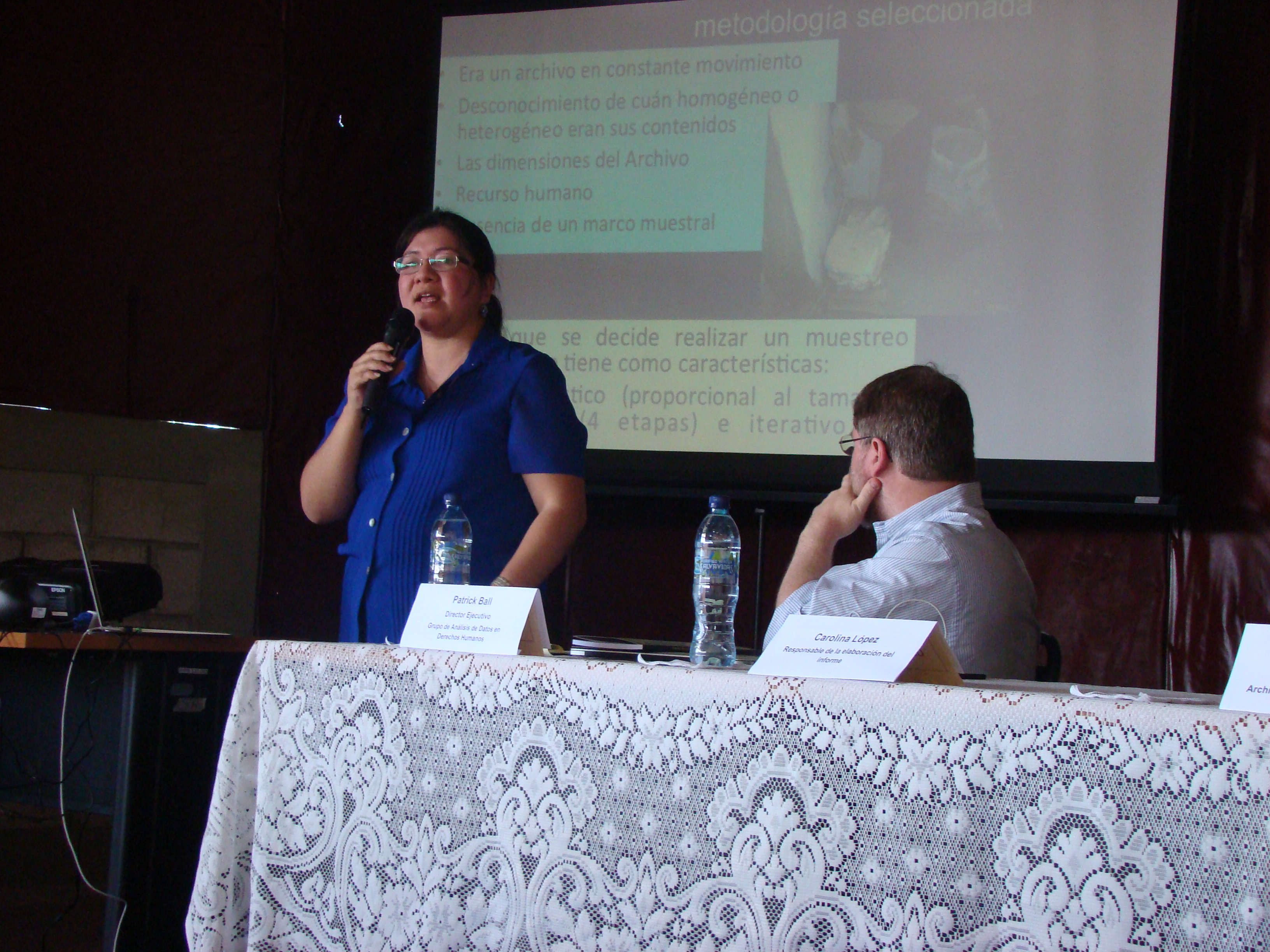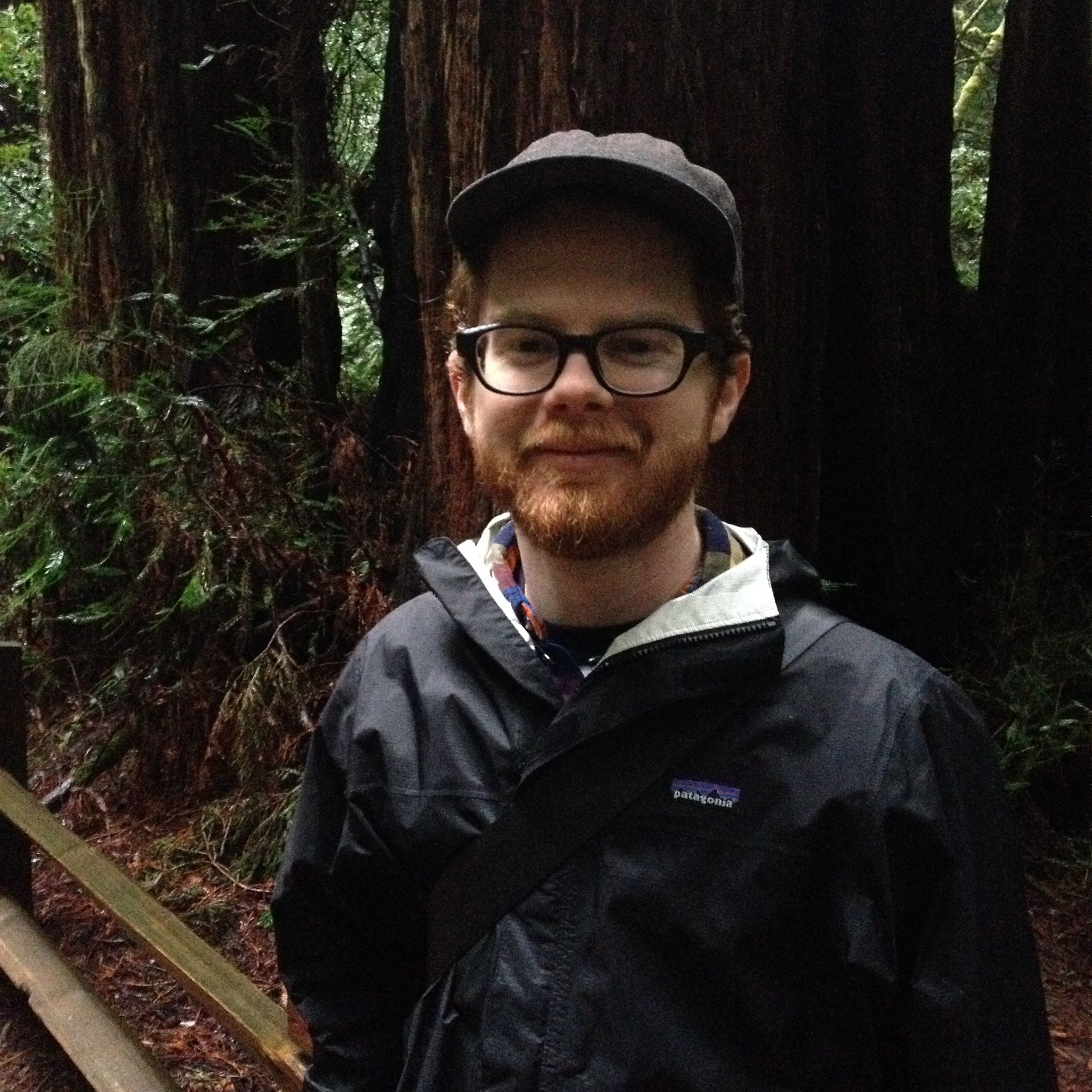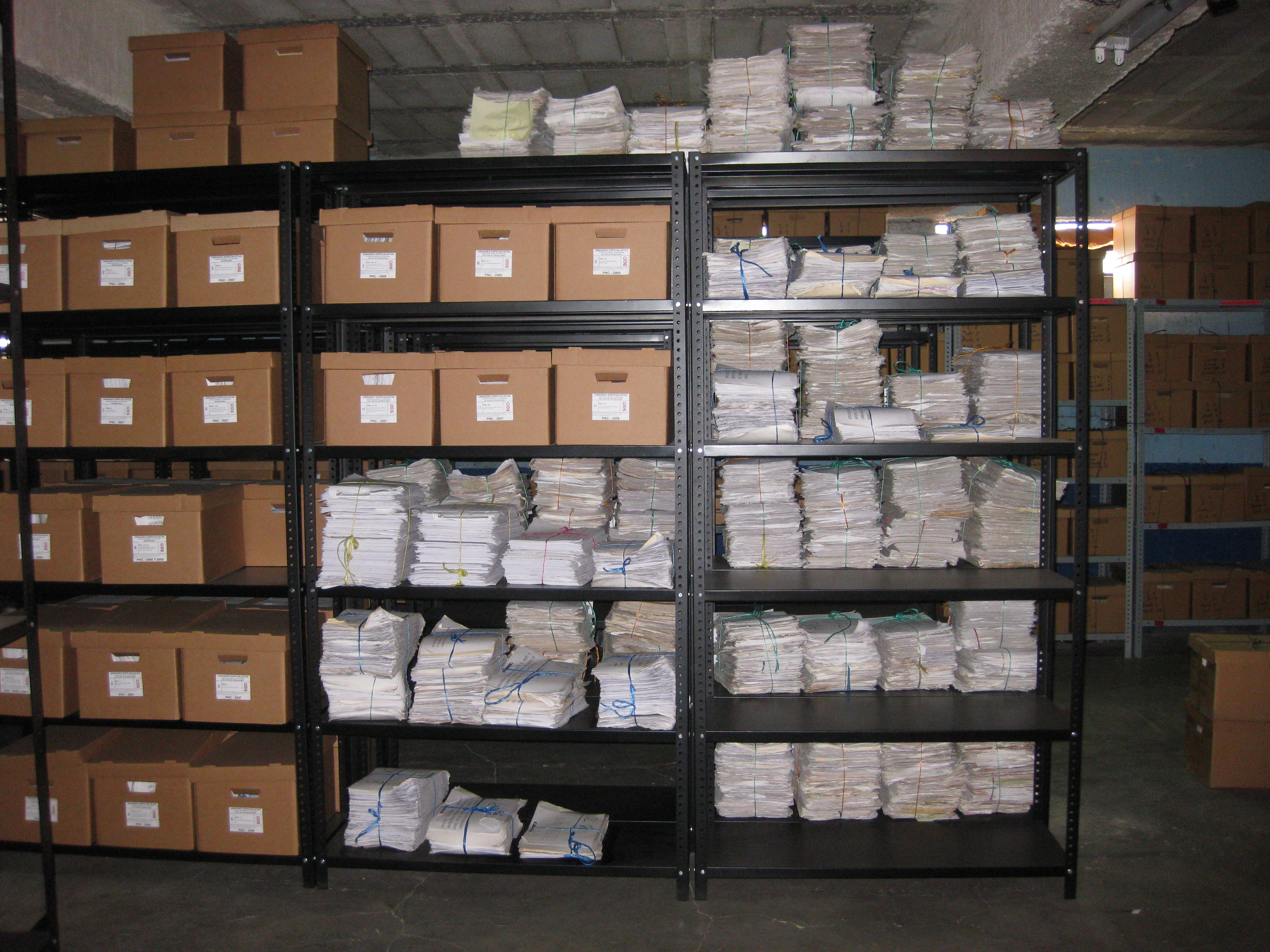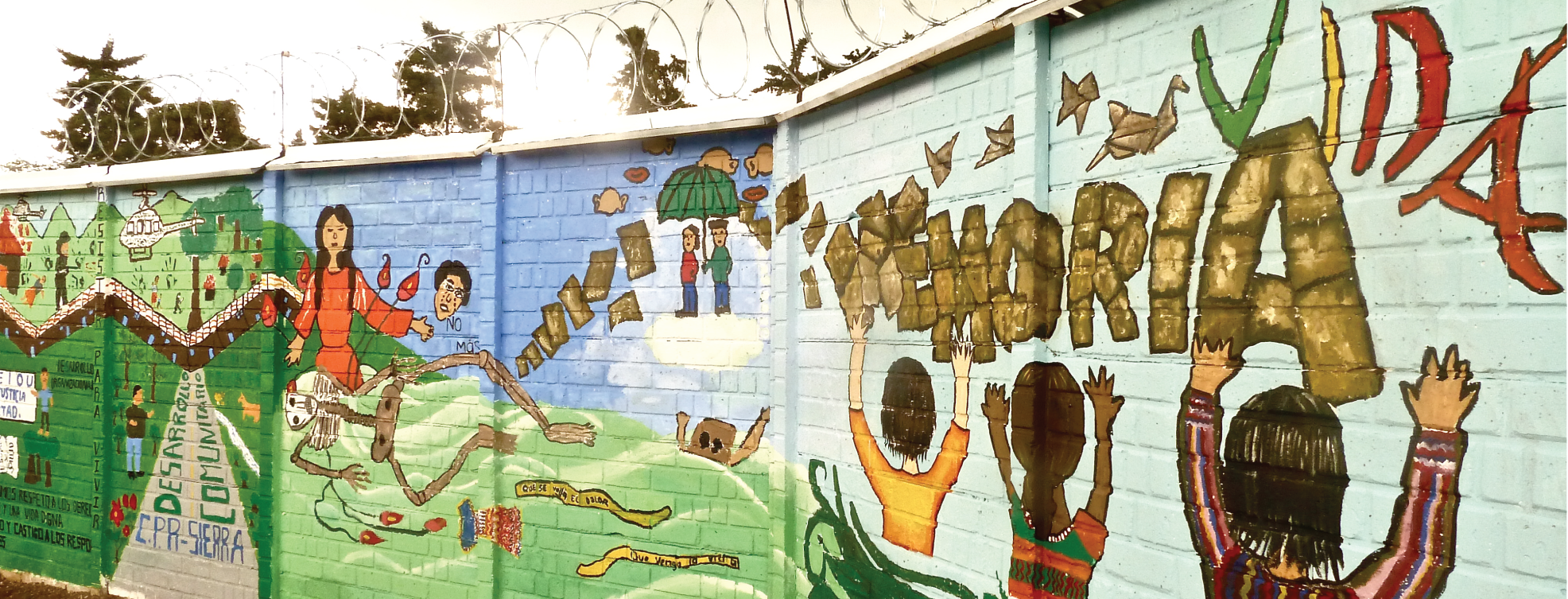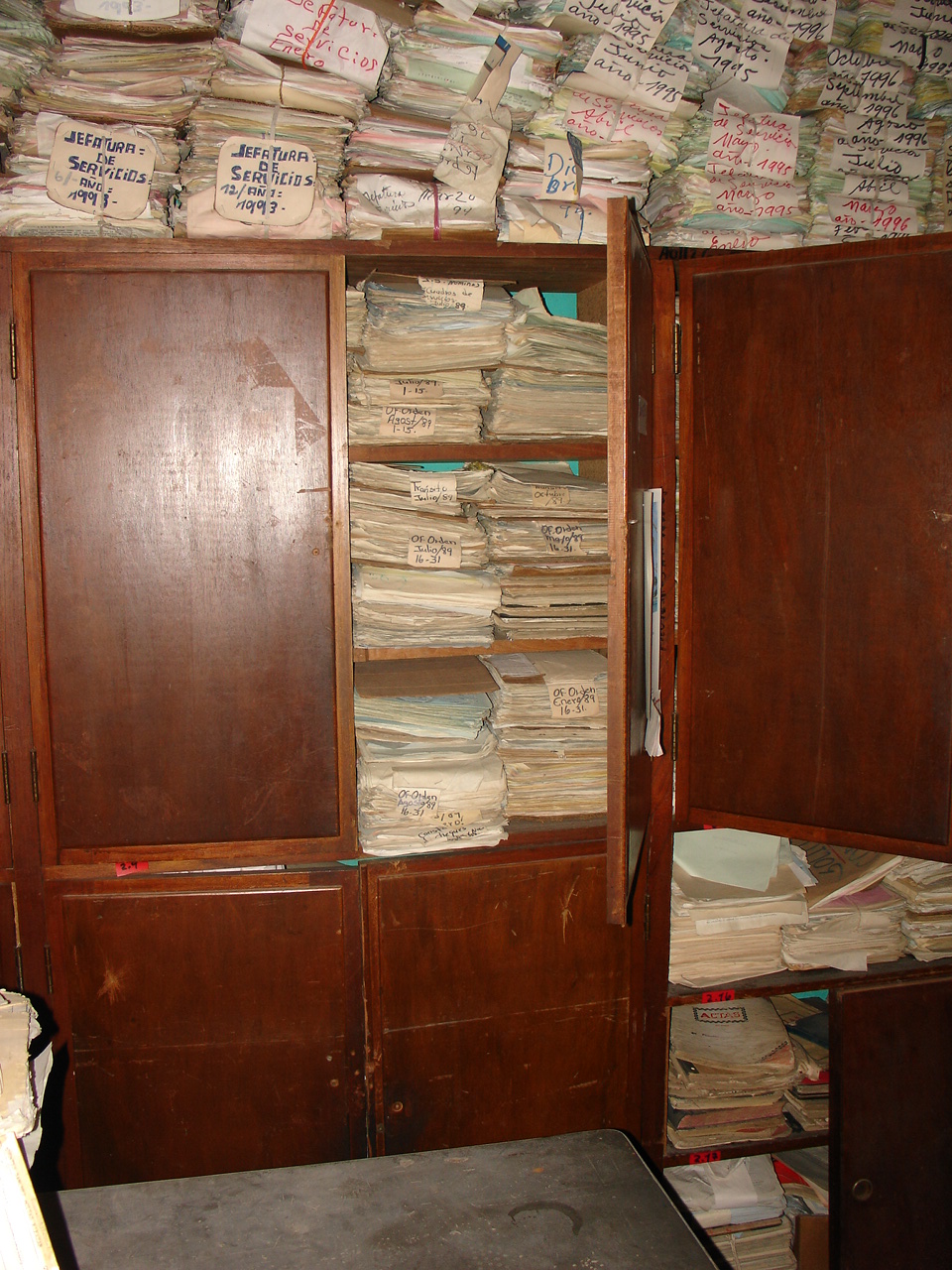Guatemala
blogposts describing work in GT
Update on Work in Guatemala and the AHPN
HRDAG has sampled and analyzed documents at Guatemala's AHPN and has testified against war criminals based on that analysis.
HRDAG Testimony in Guatemala Retrials
HRDAG analysis presented by Patrick found that 5 percent of the indigenous Maya Ixil population was killed in a 15-month period.
Reflections: A Love Letter to HRDAG
On the anniversary of the Universal Declaration of Human Rights, HRDAG executive director Megan Price tells us why she loves her work, and why she feels hopeful about the future.
Reflections: The People Who Make the Data
HRDAG associate Miguel Cruz has an epiphany. All those data he’s drowning in? Each datapoint is a personal tragedy, a story both dark and urgent, and he’s privileged to have access.
Reflections: A Meaningful Partnership between HRDAG and Benetech
I joined the Benetech Human Rights Program at essentially the same time that HRDAG did, coming to Benetech from years of analyzing data for large companies in the transportation, hospitality and retail industries. But the data that HRDAG dealt with was not like the data I was familiar with, and I was fascinated to learn about how they used the data to determine "who did what to whom." Although some of the methodologies were similar to what I had experience with in the for-profit sector, the goals and beneficiaries of the analyses were very different.
At Benetech, I ...
Reflections: It Began In Bogotá
It was July of 2006, I’d spent five years working at a local human rights NGO in Bogotá, and I had reached retirement age. But then a whole new world opened up for me to discover. Tamy Guberek, then HRDAG Latin America coordinator, whom I had met at the NGO, approached me about becoming part of the HRDAG Colombia team as a research/administrative assistant. Over a cup of suitably Colombian coffee, the deal was quickly "signed.” My responsibilities ranged from fundraising to translations, from support in data gathering for estimates on homicides and disappearances ...
Reflections: Growing and Learning in Guatemala
As a woman, mother and sociologist who is curious about the patterns of our political past in Guatemala, I feel privileged to know and work with the HRDAG team. Collaborating and learning from people like Patrick, Megan, Suzanne, Beatriz and Tamy has been an invaluable gift. I have discovered many things, both human and academic. For example, I’ve learned new ways of seeing what seemed everyday and simple, to discover that not only do the social sciences and statistics work hand in hand, but that they are critical for understanding Guatemala’s reality.
Twenty years ...
HRDAG and AHPN Launch Book Detailing Collaboration
Earlier this month, HRDAG and the Historic Archive of the National Police (AHPN) of Guatemala launched a book that represents a long-time collaboration between the two organizations. The book, “Una mirada al AHPN a partir de un studio de cuantitativo,” is, as the title states, a look at the Archive’s datasets via a quantitative study. Book authors are HRDAG executive director Megan Price and AHPN colleague Carolina López, with translations by Beatriz Vejarano. The book is available in Spanish and forthcoming in English.
The book explains how HRDAG and the Archive ...
The case of Ana Lucrecia Orellana Stormont
When working with documents in an archive, every document offers the opportunity for statistical study and quantitative research. But a document can also offer the discovery of a story. That is the case with the disappearance of Ana Lucrecia Orellana Stormont, who was reported missing on June 6, 1983, at the age of 35.
Ana Lucrecia, a professor of psychology at the University of San Carlos, was scheduled to attend a meeting with Edgar Raúl Rivas Rodríguez at the Plaza Hotel in Guatemala’s capital city. Edgar, who also went missing, was a teacher at the School of ...
Data Archaeology for Human Rights in Central America: HRDAG Collaborates with UWCHR
Patrick Ball is kicking himself for a decision he made almost 25 years ago. “I was clever, but I wasn’t smart,” he says ruefully, as he considers the labyrinth of tables and ASCII-encoded keystrings he used to design a database of human rights violations for the pioneering Salvadoran non-governmental Human Rights Commission (CDHES). Now I’m sitting in his office in San Francisco’s Mission District watching over his shoulder, and trying to keep up, as he bangs out code to decipher the priceless data contained in these old files. Created in 1991 and 1992, ...
Ten Years and Counting in Guatemala
We have accomplished so much in the last 10 years at the Historical Archive of the National Police. And yet, despite the efforts, dedication, and commitment of each person who since 2006 has worked in the AHPN, we still can not say “mission accomplished.”
In 10 years the environment at the Archive has changed so much and become so full of life. Where the building once sheltered unknown stories, over time some of those stories have been revealed. But Guatemala has a long way to go in letting the world get to know more deeply about the secrets within the documents ...
Celebrating Ten Years of Data from the AHPN
Ten years ago, in July 2005, human rights officers stumbled upon a nondescript warehouse in a commercial zone of Guatemala City and changed history. They had discovered an archive–its existence kept secret–belonging to the Guatemalan National Police, whose officers committed human rights atrocities on behalf of the government during the civil war.
Inside the building was the bureaucratic detritus typical of a large government agency: 80 million pages detailing shifts worked, tasks assigned, assignments fulfilled, workers’ whereabouts, and who was supervising ...
The Great Lessons in Research at the Archive
Doing an investigation on the contents of the Archive brought with it three major lessons. The first big lesson was the constant movement (nothing was static), The second great lesson was that everything evolved (the changes were a constant). The third major lesson was to discover how two institutions can work together while geographically far apart.
The constant movement
As there were other processes being carried out at the Archive, everything was in constant movement. In other words, one day the documents were in X location and tomorrow they may be in location Y ...
The AHPN: Home of Stories Old and New
Access to the records contained in archives is a concern shared by many. Archives support memory and free access to them strengthens democratic processes. Everyone should be allowed to see first-hand the records contained in an archive and be free to interpret them as needed.
Access to archives can increase knowledge on various topics and opens opportunities for different fields of knowledge. (more…)
IRR: Agreement Among Coders is Key
For years I have been engaged in a quantitative study at Guatemala’s Historic Archive of the National Police, or AHPN. (See the blogposts below.) In this study coders collect data on sheets of paper according to criteria established and explained in manuals. But when collecting data, there’s always room for human error—this is why the validity of the study hinges on verifying that coders use the correct criteria.
It is important to mention that the mainstay of coding is the use of a controlled vocabulary. A controlled vocabulary gives analysts a framework, or ...
12 Questions about Using Data Analysis to Bring Guatemalan War Criminals to Justice
When people talk about war criminals in Guatemala, which war are they talking about?
They’re talking about the Guatemalan civil war, which began in 1960 and ended in 1996. That’s thirty-six years of civil war. Even though it ended almost two decades ago, Guatemala is still recovering from it. At its simplest, this civil war story was right-wing government forces fighting leftist rebels. But it went deeper than that, of course. The majority of the rebel forces was composed of indigenous peoples, primarily the Maya, (more…)
Learning Day by Day: Quantitative Research at the AHPN
Working at the Historic Archive of the National Police (AHPN) of Guatemala, there are many skills I learned on the job. My many years of work on the team that studies the recovered documents have been like a custom-made course in how to do quantitative research.
The Archive documents I study are the result of 36 years of creation during civil war (1960 to 1996). Many of these documents are simply administrative—but we are able to use them to understand patterns that occurred during the conflict, to get a sense of what mattered to the National Police and what ...
Ouster of Guatemala’s Attorney General
We were surprised and disappointed to learn that our colleague Claudia Paz y Paz has had her term as Guatemala’s attorney general cut short. The nation’s Constitutional Court ruled on 6 February that her four-year term will end this May, instead of in December. (She was appointed in December 2010, replacing an attorney general who was appointed in May 2010.)
During her term, she put four generals from Guatemala’s civil war on the stand for charges of crimes against humanity and genocide, including General José Efraín Ríos Montt, who ruled from 1982 to 1983. We ...
The Art and Science of Coding AHPN Documents
The coding, from my perspective, is the heart of the project. I say this, because the coding team has the responsibility of selecting documents according to the random sample, recording the documents’ contents, and applying the criteria to convert that content into an entry in a quantitative database. Not to mention the fact that this team has the privilege of being in direct contact with the documents.
At present, because of advanced organizational processes, not everyone has a chance to hold an original document in their hands. The quantitative study had many ...
The story of one document inside the AHPN
The beginnings are crucial in every step—as critical as the beginning of sound, life, hope, and justice. Here are some first steps from the AHPN (Archivo Histórico de la Policía Nacional).
This is the story of Oficio Number COC/207-laov, a document that at first appears uninteresting. But this is not just any oficio*. This is one of the many documents that helped bring to trial the people responsible for the disappearance of Edgar Fernando García. A father, husband, son, and student, García was, like many people today, interested in changing his community for ...



